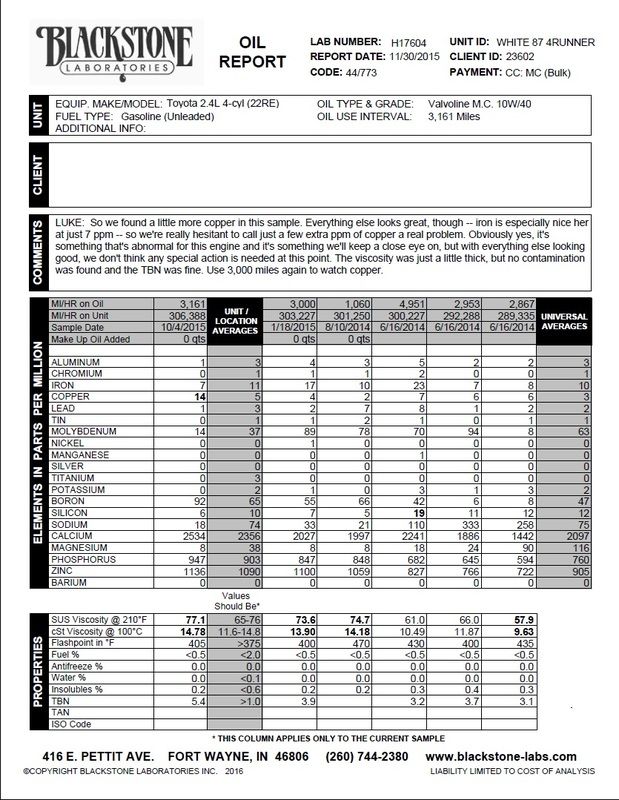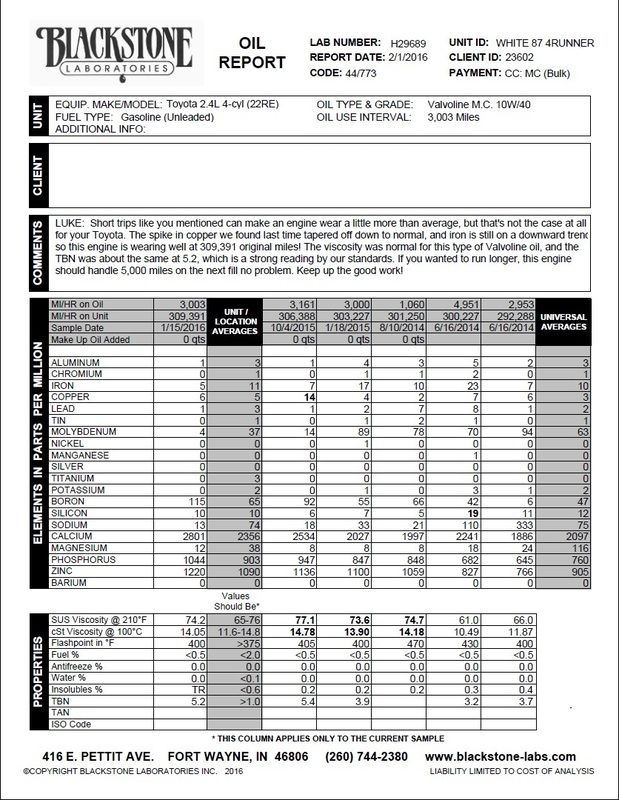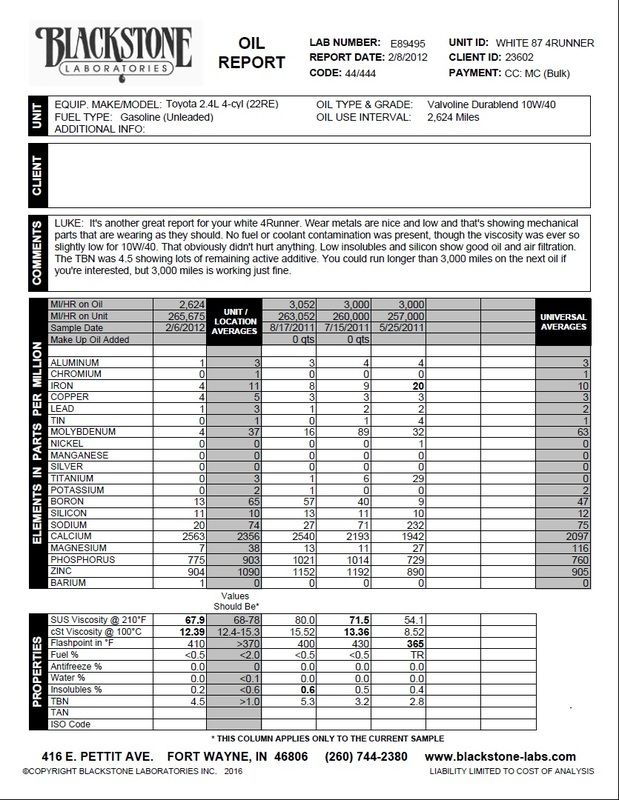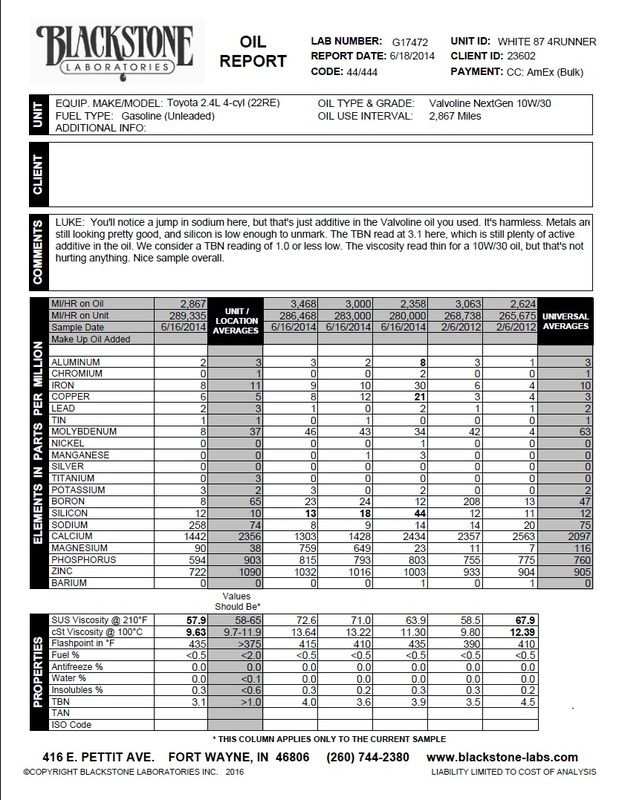Hey BITOG gurus,
Quick thought for you guys. I have a stash of some Valvoline 10w40 motorcycle oil that I bought about 4-5 years ago that I'm still trying to use up. I have about 12 quarts left. I was running it in my 1987 4Runner with the 22RE engine with great success with the exception of a very noticeable decrease in fuel economy when running a 40wt vs a 30wt oil. I can show that without a doubt using heavier oil (40 vs 30) costs me about 2 MPG across the board (city, mixed, highway) in fuel economy. On Xw30 it gets 17.8 city and 20-21 Highway, switch it out to Xw40 like it has in it right now and it drops to 15-16.2 city and 17.8-18.2 highway. It's repeatable data spread over 5 years and about 60,000 miles across all seasons that immediately shows improvement back to the higher MPG as soon as it's filled with 30wt again.
Ok so... Maybe not such a quick thought, but I say all that to say this...
I was planning on taking advantage of the Napa Synthetic sale this month, planning on buying probably two cases of 5w30 for use in the 4Runner and in my 2004 Lexus ES330. Both vehicles hold 5 quarts, I was considering running 4 quarts of the Napa Syn 5w30 with 1 quart of the Valvoline MC 10w40. That would give me enough oil to do 6 oil changes and would use up half of my stash of my 10w40 MC. The other 6 quarts I can use in my 1976 Chevy truck with a 350 that's a bit tired and prefers a heavier oil (and frankly will never get good mileage).
What are your thoughts? Is this a recipe for disaster or a viable plan? Both vehicles are driven in Florida where save for a handful of days per year the temp is never below 40 and evenin the cold months the temps are in toe 50-60's with summer temps in the 85-95 range.
Looking forward to your thoughts!
Quick thought for you guys. I have a stash of some Valvoline 10w40 motorcycle oil that I bought about 4-5 years ago that I'm still trying to use up. I have about 12 quarts left. I was running it in my 1987 4Runner with the 22RE engine with great success with the exception of a very noticeable decrease in fuel economy when running a 40wt vs a 30wt oil. I can show that without a doubt using heavier oil (40 vs 30) costs me about 2 MPG across the board (city, mixed, highway) in fuel economy. On Xw30 it gets 17.8 city and 20-21 Highway, switch it out to Xw40 like it has in it right now and it drops to 15-16.2 city and 17.8-18.2 highway. It's repeatable data spread over 5 years and about 60,000 miles across all seasons that immediately shows improvement back to the higher MPG as soon as it's filled with 30wt again.
Ok so... Maybe not such a quick thought, but I say all that to say this...
I was planning on taking advantage of the Napa Synthetic sale this month, planning on buying probably two cases of 5w30 for use in the 4Runner and in my 2004 Lexus ES330. Both vehicles hold 5 quarts, I was considering running 4 quarts of the Napa Syn 5w30 with 1 quart of the Valvoline MC 10w40. That would give me enough oil to do 6 oil changes and would use up half of my stash of my 10w40 MC. The other 6 quarts I can use in my 1976 Chevy truck with a 350 that's a bit tired and prefers a heavier oil (and frankly will never get good mileage).
What are your thoughts? Is this a recipe for disaster or a viable plan? Both vehicles are driven in Florida where save for a handful of days per year the temp is never below 40 and evenin the cold months the temps are in toe 50-60's with summer temps in the 85-95 range.
Looking forward to your thoughts!







